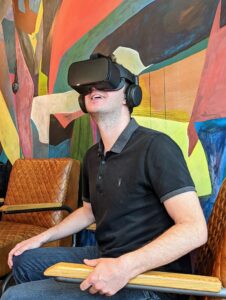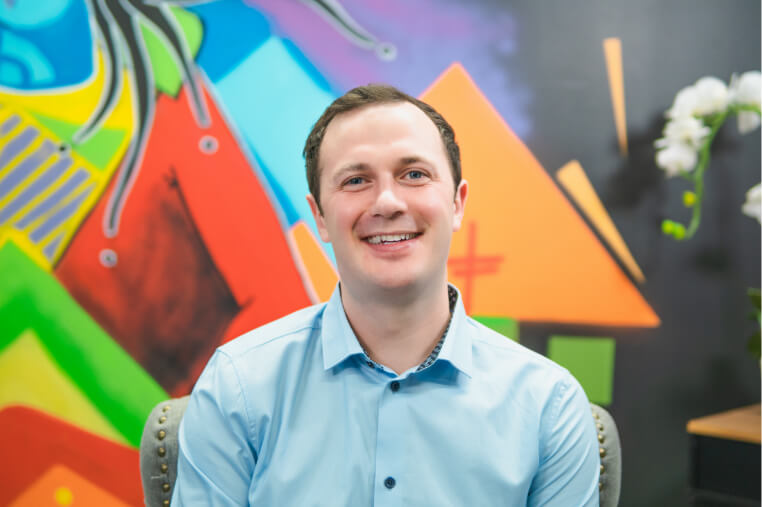There are so many digital possibilities to learn a foreign language nowadays. Have you ever considered virtual reality as one?
“What could be possible advantages of using this tool for learning a new language?” you might think.
With the help of Barlingua, sofatutor and Berlin School of English, a questionnaire-based study has been set up to try and find this out.
The aim of the study was to to investigate students’ personal impressions of this medium with regards to the benefits of virtual reality. In the past, virtual reality has been already successfully implemented in psychology to overcome fears. As foreign language speaking anxiety is a common fear amongst language learners, another aim of this study was to find out whether VR has a potential to reduce foreign language (speaking) anxiety.
 The questions which the study sought at answering are:
The questions which the study sought at answering are:
- How is VR perceived by English learners?
- Can the affordances (Authenticity, immersion, integration, interaction, anxiety reduction) of VR for the EFL classroom be confirmed by the students?
- What kind of effect does virtual reality have on students suffering from foreign language anxiety?
- How do learners perceive working with smartphones in their EFL class?

In order to evaluate these questions, students learning English (B1 and higher) had to perform a task in VR. They simulated a debate in small groups (up to 4 people) which was about the former president’s plan to build a wall to stop illegal immigration. Students had to take on one of the 3 roles: moderator, supporter or opponent. They used the app “vTime”, a smartphone, VR glasses, headphones and role cards.
A questionnaire was given to all the participants before and after the task in VR. 19 students participated in this study.
Outcomes:
- The learners’ encounter with VR is significantly positive. The majority reported to have enjoyed the VR task and reported a positive state of feeling during the simulation in VR.
- Interaction was identified as the strongest affordance of all the three possible advantages (immersion, interaction and integration). This suggests that the simulation in VR serves as a useful activity to foster interactive engagement. Immersion: The majority of students reported not having felt completely absorbed in the world of VR provided by the application “vTime”. Authenticity: the virtual world presented by “vTime” does not offer the participants an authentic learning environment.
- Reduction of foreign language speaking anxiety: Just over half of the identified anxious students (56%) reported benefitting from this medium after the single exposure in VR in terms of improving their fluency and motivation to participate more actively in the discussion. However, nonanxious students feel more inclined to engage in oral conversations after they have conducted the VR simulation than anxious learners. VR also helped the majority of the participants (79%) to take on another perspective. (Another indication of VR’s potential to decrease anxiety)
- Working with smartphones – students’ opinion: After VR simulation, most students’ motivation to use their mobile device for learning English increased. 70% of the respondents describe their experience with smartphones and the provided VR glasses as “very positive” or “positive”, despite the case that many of the learners encountered technical difficulties.
All in all, we can say that VR might serve as an additional useful tool to help create engaging and interactive learning environments for anxious as well as nonanxious students to practice their speaking skills in order to become more confident in “real” interactions. (It’s not supposed to replace face-to-face conversations)
The questionnaire-based study represents the recording of one single moment students come into contact with the virtual world. (Results describe merely students’ personal perception of a single exposure in VR)


